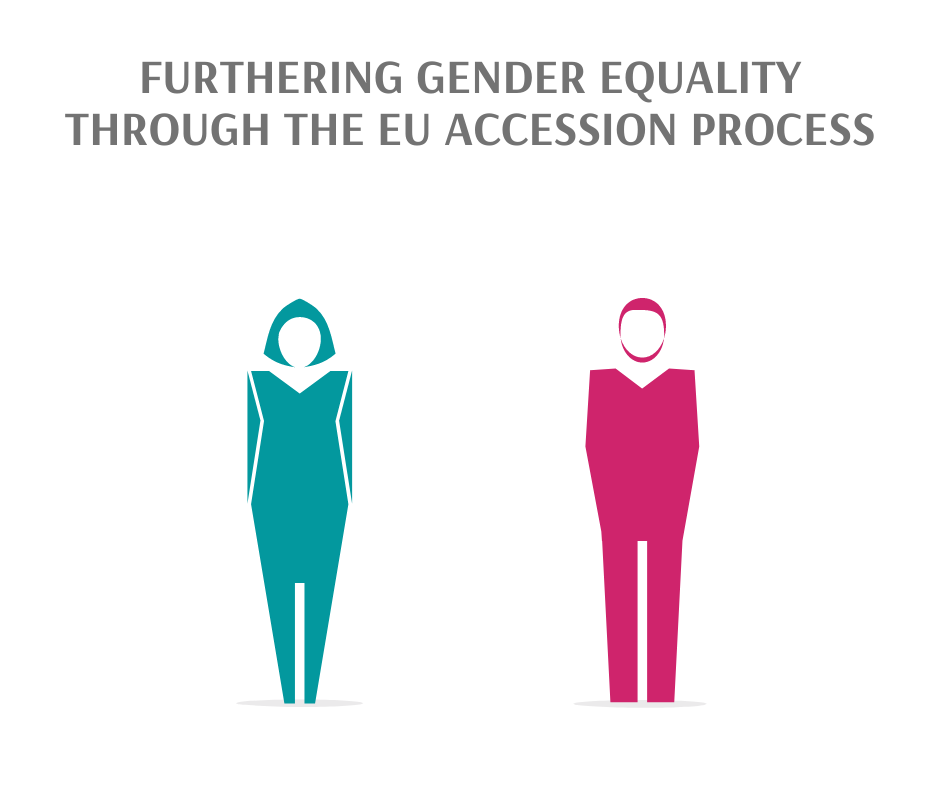
After a long consultation process and independent evaluation on EU’s external support to gender equality and women’s and girls’ empowerment, in November 2020, EU published the new Gender Action Plan III – An Ambitious Agenda for Gender Equality and Women’s Empowerment in External Action (2021 – 2025) accompanied by objectives and indicators.
At the same time, the document is guiding the work of the EU Delegations and the European External Action Services, defines how EU assistance (IPA) will be programmed as well as the political dialogue in our country. Programming and political dialogue are focused on the reforms in the country that need to take place in the EU accession process
GAP III aims to tackle the root causes of inequality and discrimination through three guiding principles and provides for the introduction of the Country-level Implementation Plan (CLIP), which will guide the implementation of GAP III at the national level. This plan is a key novelty and should be based on a gender analysis that will identify key issues (new or appropriately updated gender profile of the country), consultations (with institutions, EU member states, EU bodies, other development bodies, civil society) , and where possible, this plan should be aligned with national policies and priorities.
For a successful implementation of GAP III, stronger partnership with women’s rights organisations is crucial, ensuring funding for GAP III and specifically for women’s organisations in partner countries, as well as programming for gender equality based on gender mainstreaming and analysis.
You can read more about what CLIPs must include in the input of civil society organizations to the consultation process for the development of the GAP III Country Level Implementation Plan in North Macedonia.
This post is part of the project “Furthering gender equality through the EU Accession Process”, funded by the European Union and co-funded by the Swedish International Development Cooperation Agency (Sida).
The contents of this post are the sole responsibility of Reactor – Research in Action and do not necessarily reflect the views of the European Union or the Swedish International Development Cooperation Agency.